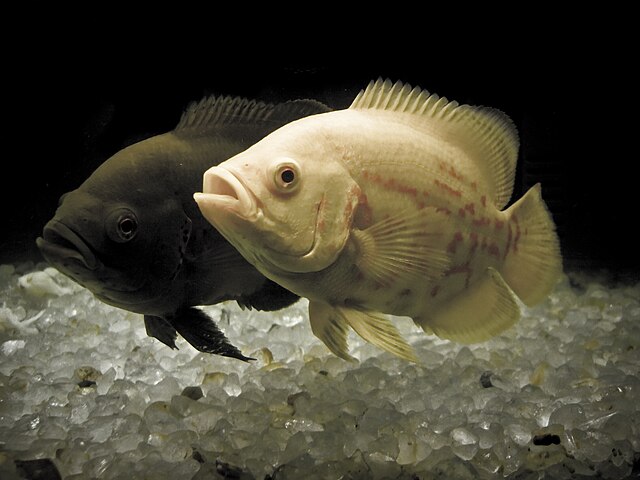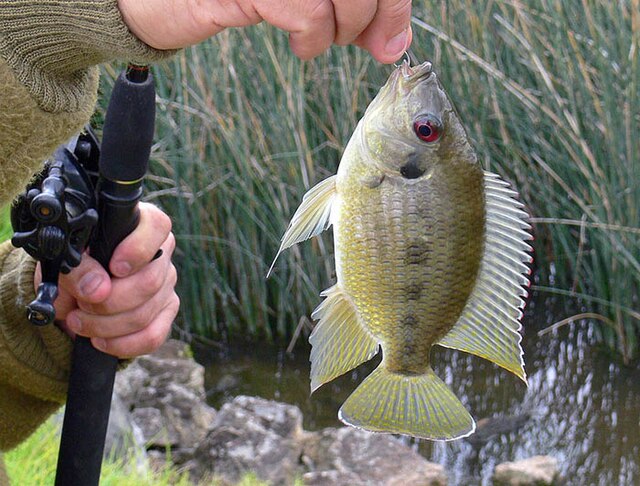The oscar is a species of fish from the cichlid family known under a variety of common names, including tiger oscar, velvet cichlid, and marble cichlid. In tropical South America, where the species naturally resides, A. ocellatus specimens are often found for sale as a food fish in the local markets. The fish has been introduced to other areas, including India, China, Australia, and the United States. It is considered a popular aquarium fish in Europe and the U.S.
Oscar (fish)
1831 watercolor of Astronotus ocellatus by Jacques Burkhardt.
Ocelli on dorsal fin and caudal peduncle
Two tiger oscars
Cichlids
are fish from the family Cichlidae in the order Cichliformes. Traditionally Cichlids were classed in a suborder, the Labroidei, along with the wrasses (Labridae), in the order Perciformes, but molecular studies have contradicted this grouping. On the basis of fossil evidence, it first appeared in Tanzania during the Eocene epoch, about 46–45 million years ago; however, molecular clock estimates have placed the family's origin as far back as 67 million years ago, during the late Cretaceous period. The closest living relative of cichlids is probably the convict blenny, and both families are classified in the 5th edition of Fishes of the World as the two families in the Cichliformes, part of the subseries Ovalentaria. This family is large, diverse, and widely dispersed. At least 1,650 species have been scientifically described, making it one of the largest vertebrate families. New species are discovered annually, and many species remain undescribed. The actual number of species is therefore unknown, with estimates varying between 2,000 and 3,000.

Cichlid
A 19th century watercolor painting of a pale flag cichlid by Jacques Burkhardt.
Pelmatolapia mariae, caught on a hook and line, in Australia: Originally from Africa, the species established feral populations in Australia.
The bumblebee cichlid, Pseudotropheus crabro, is specialised in feeding on parasites from the catfish Bagrus meridionalis.








